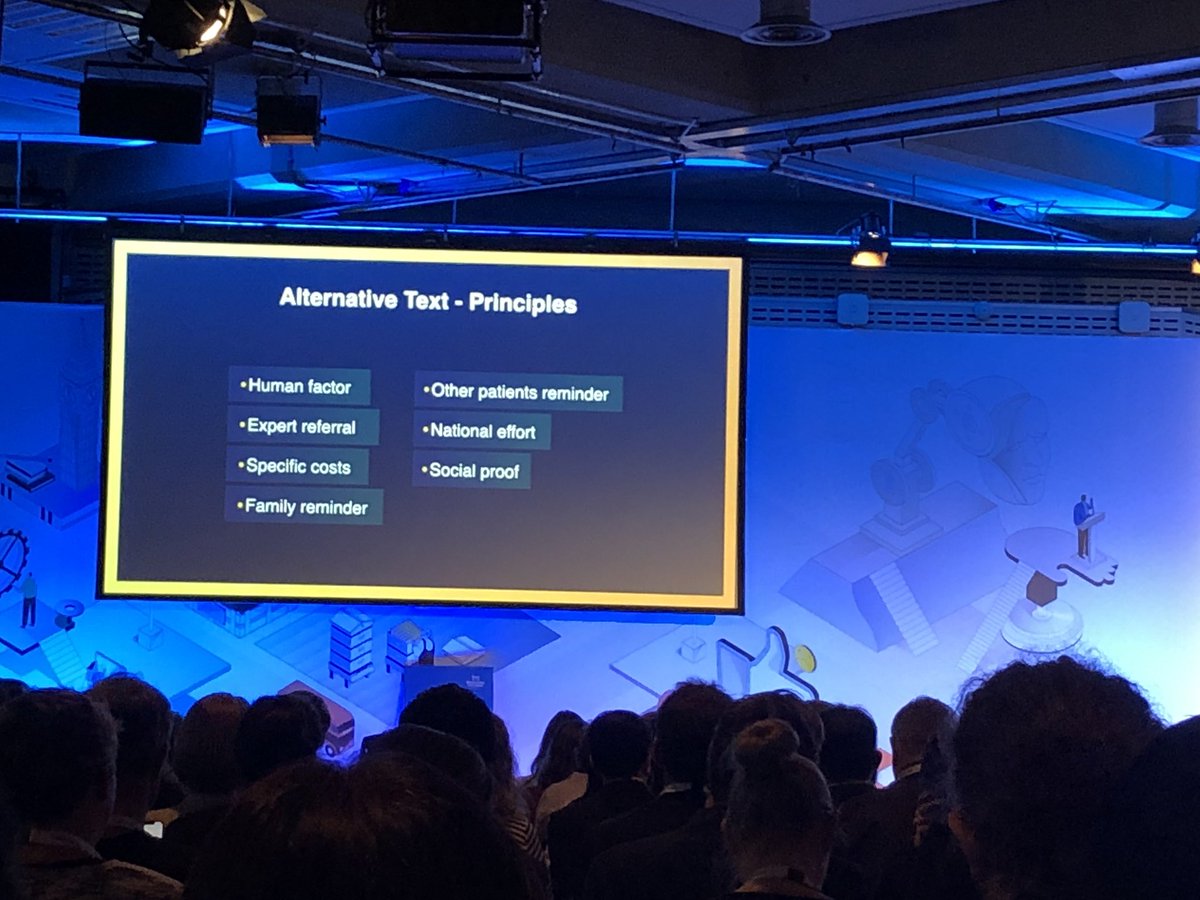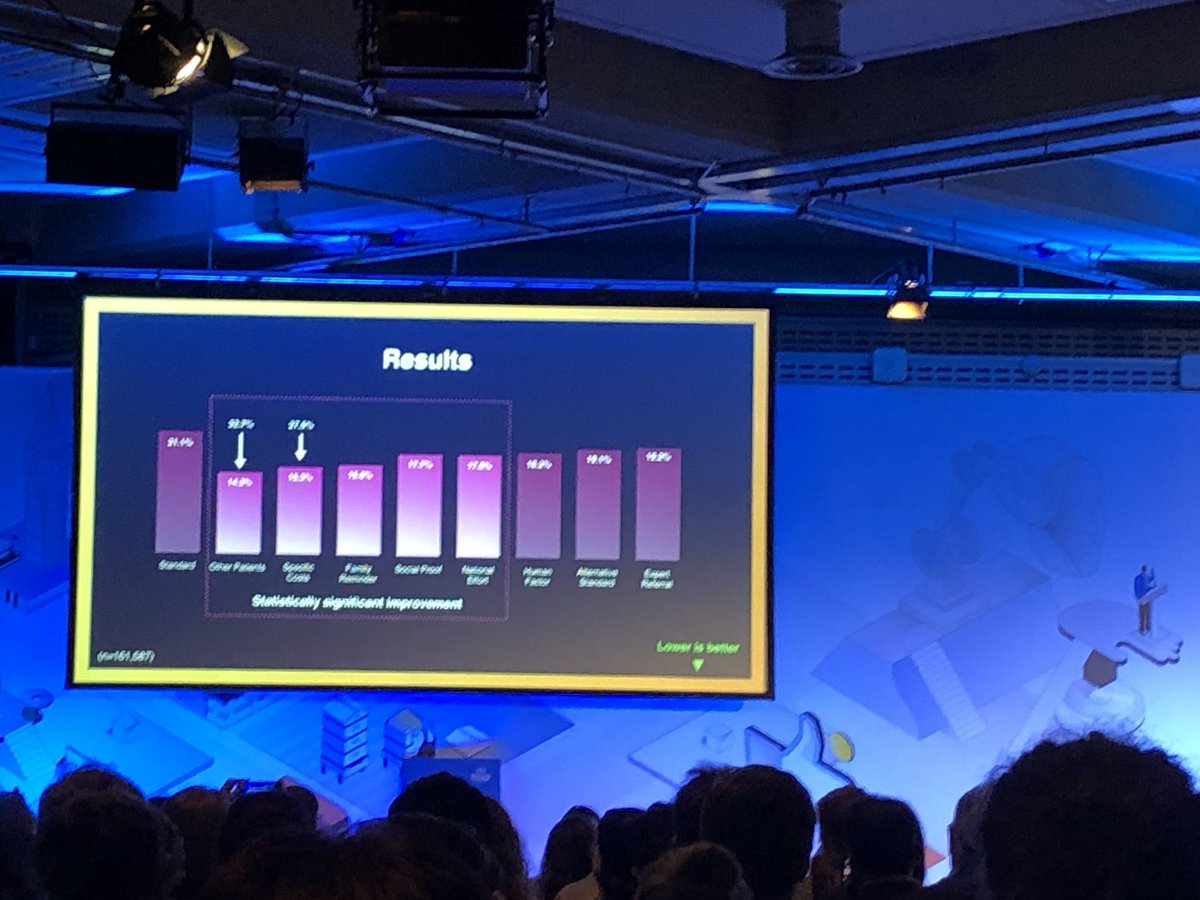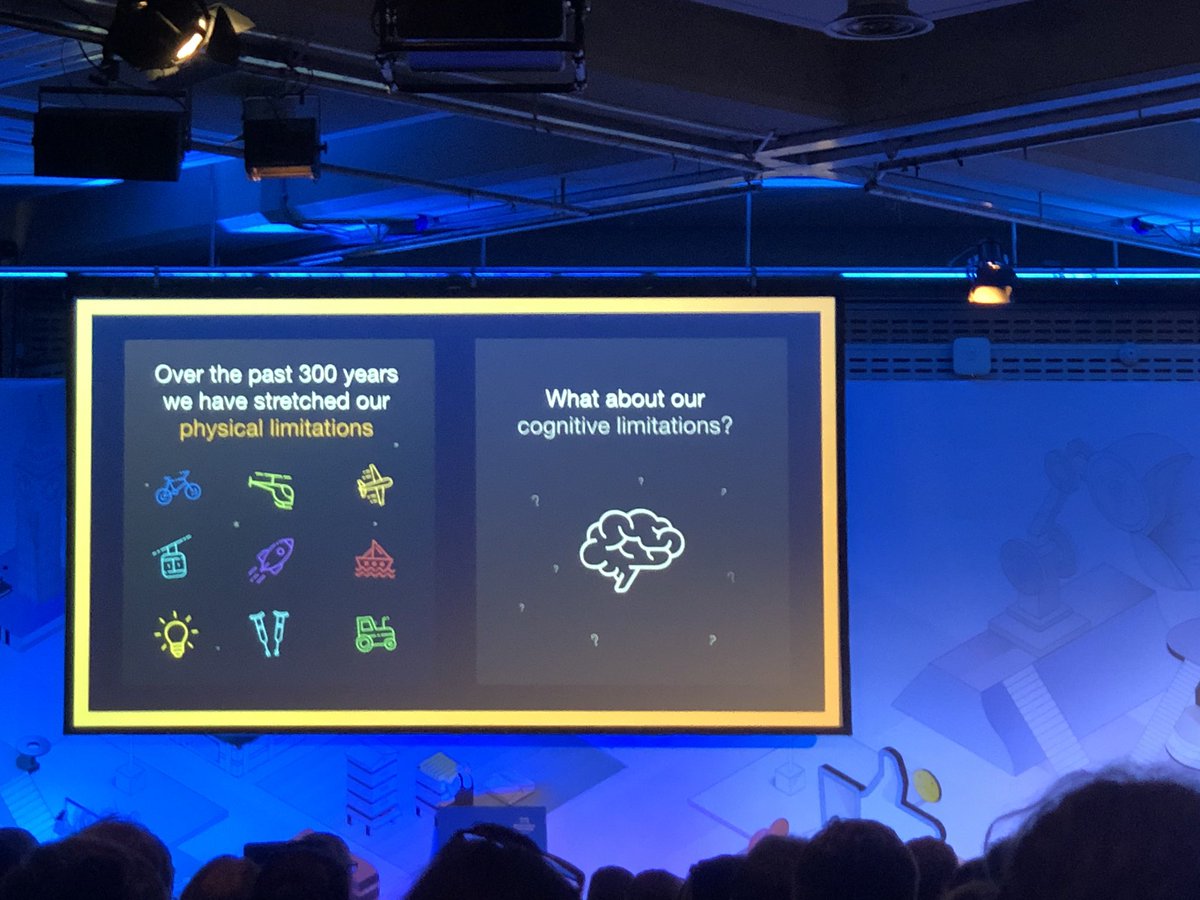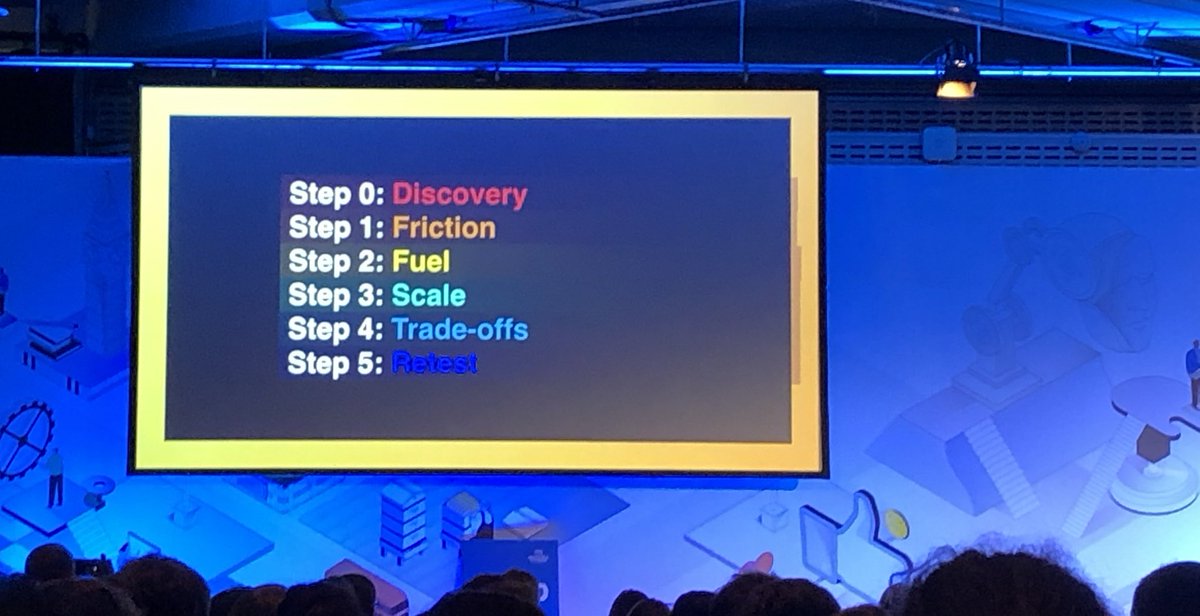The standard answer: Information
But we all know that information on its own doesn’t work. There is a gap between intentions and actions.
#BX2019
- Friction (make it easy. Lower barriers)
- Fuel (create motivation.)
#BX2019
Nudges:
- Anchoring
- Defaults
- Financial incentives
- Scare tactics
#BX2019
Status quo: Reminders
Interventions and results:
#BX2019


Tailoring interventions to specific patients.
#BX2019
Often we need to take a step back to better understand what behaviour we are actually trying to change.
More focus needs to placed on the discovery phase of BD projects.
#BX2019
Multi-modal approach to data collection (cellular data, behaviour, drone footage, simulations, etc)
#BX2019
- Flexi-time encouragements
- Personal commuting plan (map transport alternatives)
- Financial incentives (retrospective, advance)
#BX2019
Think about the trade offs between interventions, with a broader focus than just first order behaviours (eg tax collection vs how do citizen feel about paying tests).
#BX2019
Social science isn’t physics.
The social world changes fast.
Eg How do electric and autonomous vehicles change commuting behaviour.
#BX2019
We need to design a world that moves with the grain of our inherent psychology (e.g overspending). #BX2019

Small tweaks are great, but we need to think bigger. Let’s leverage technology to design Behaviourally-centered tools from scratch.








